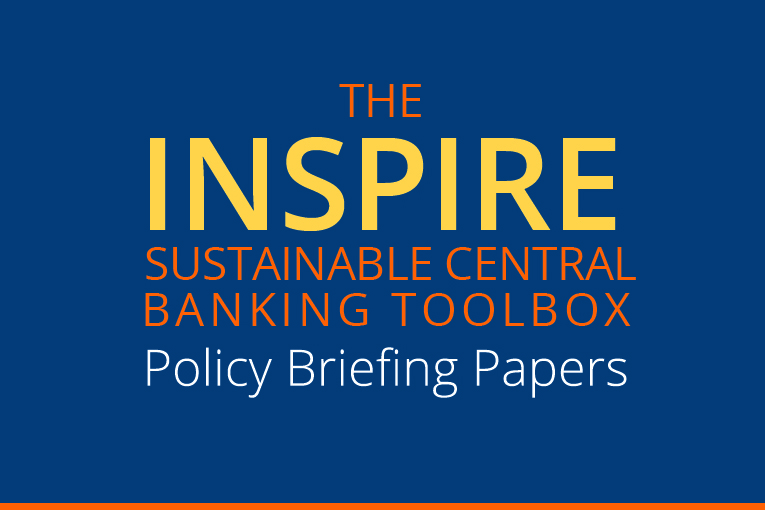Sustainable and responsible management of central banks’ pension and own portfolios

Download
INSPIRE Central Banking Toolbox – Policy Briefing no. 4
Central banks are increasingly looking to align their operations with sustainability objectives, not only to ensure financial stability, but in terms of managing their own investment portfolios.
This paper presents an overview of current practices on sustainable and responsible management of central bank portfolios and provides recommendations for central banks on how to introduce sustainable, responsible or ESG (environmental, social and governance) aspects to those portfolios.
Main messages
- Central banks’ progress in the area of sustainable and responsible investing (SRI) has, until now, been relatively muted compared with peers from across the financial ecosystem. Most central banks have taken a conventional investment approach that does not consider ESG and views sustainability as an additional element rather than an investment objective in itself.
- Although integrating SRI principles in own and pension portfolios remains a limited practice, it is now growing within the central bank community, motivated by the desire to protect portfolios from climate-related risks and to contribute to sustainable economic development. Some central banks also specifically cite the importance of leading by example.
- The urgency of the climate crisis requires taking bold steps. Central banks may choose to act on one portfolio or asset class first before committing to wider RI policies. The key is to act and start incorporating RI into asset management now.
Recommendations
- Reframe the ‘trinity’ approach to investment objectives (of liquidity, safety and return) and explore the role of responsibility as an additional and linked objective.
- Build a complete framework rather than selecting individual strategies and approaches and set targets.
- Embed responsible investment into the choice of external managers.
- Assess options for risk management and impact when implementing positive or negative screening of the investment universe.
- Broaden engagement beyond the central bank community to connect with a wider peer group.
- Cultivate the ability to tolerate uncertainty: choices will need to be made in the face of uncertainty, data gaps and sparse research on ESG impacts and targets on investment objectives.
This paper is part of the INSPIRE Sustainable Central Banking Toolbox, which is designed to support central bankers and financial supervisors in calibrating monetary, prudential and other instruments in accordance with sustainability goals as they address the ramifications of climate change and other environmental challenges. The papers have been written and peer-reviewed by leading experts from academia, think tanks and central banks and are based on cutting-edge research, drawing from best practice in central banking and supervision.

